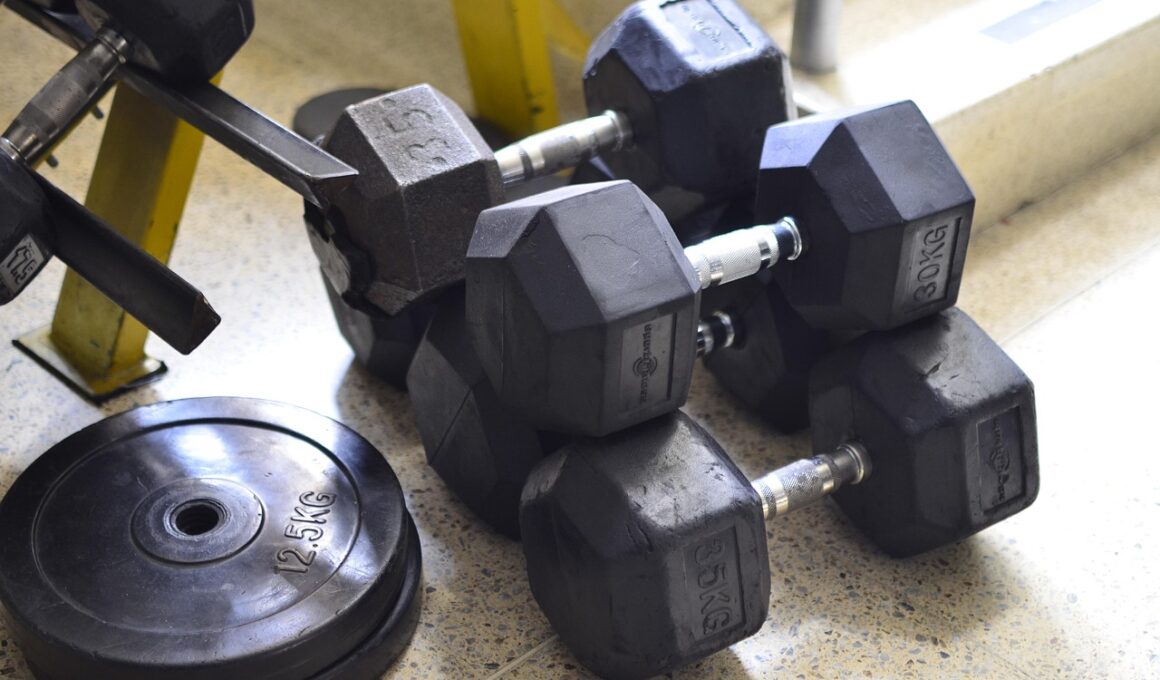Intermittent Fasting and Its Effect on CrossFit Post-Workout Nutrition
Intermittent fasting (IF) has grown in popularity among fitness enthusiasts, particularly among CrossFit athletes looking for the optimal approach to post-workout nutrition. The core principle of IF involves cycling between periods of eating and fasting, which can lead to various metabolic adaptations. For CrossFit athletes, fasted training sessions might yield potential benefits, but understanding how to effectively refuel afterward is essential. During the fasting window, significant hormonal changes occur, including increased growth hormone levels and improved insulin sensitivity. However, it is vital to time meals properly after workout sessions to maximize recovery. Post-workout nutrition should emphasize nutrient-dense meals that contain a proper balance of macronutrients: carbohydrates for glycogen replenishment and protein for muscle repair. By adhering to these nutritional strategies, CrossFit athletes engaging in intermittent fasting can seek to enhance performance while minimizing fatigue. Additionally, understanding individual responses to fasting protocols can help tailor an effective nutrition plan. As research continues to evolve on the subject, athletes may need to experiment to find the optimal post-workout nutrition protocol that aligns with their specific goals and capabilities.
Many CrossFit athletes might wonder how a restricted eating window impacts performance and recovery. The combination of intense workouts and intermittent fasting can be a double-edged sword. On one hand, fasting can promote fat oxidation, which some athletes aim for; on the other hand, adequate post-workout nutrition is crucial to aid recovery and muscle growth. It has been suggested that the timing of nutrition intake post-workout plays a crucial role in maximizing muscle repair and growth potentials. The major concern lies in ensuring that athletes consume sufficient calories within a limited time, as fasting may create challenges in reaching energy needs. Validating these dietary habits through tracking macronutrient intake can help in assessing performance and adjusting based on personal energy requirements. Incorporating nutrient timing concepts into their routines can help CrossFit athletes find the balance needed to maintain energy levels. Nutritional practices should emphasize not only the foods consumed post-exercise but also the timing for optimal benefits, particularly in relation to IF. This strategic approach to nutrition may help in fostering better adaptations to strength and endurance training over time.
Another critical aspect of post-workout nutrition for CrossFit athletes practicing intermittent fasting is meal composition. A well-rounded post-workout meal should consist of a high protein source, quality carbohydrates, and healthy fats. Protein plays a vital role in the recovery process, aiding in muscle repair and synthesis. High-quality protein sources include lean meats, dairy, legumes, and protein supplements, providing the necessary amino acids. Carbohydrates are equally important as they help regenerate glycogen stores depleted during intense workouts. Quick-digesting carbs, such as fruits or rice, are excellent options for post-workout meals, especially after prolonged fasting periods. Healthy fats can also play a role in hormone production and overall satiety, but athletes should choose options that won’t slow digestion. Examples include avocados, nuts, and olive oil. The intricate balance between these macronutrients will ultimately determine how well athletes recover and prepare for subsequent training sessions. As CrossFit athletes experiment with their post-workout nutrition while fasting, they must provide their bodies with adequate nutrients for optimal performance.
Understanding Hydration in Fasting and Nutrition
Hydration often takes a backseat in discussions about post-workout nutrition, yet it plays a fundamental role in performance and recovery. For those practicing intermittent fasting, maintaining hydration can pose unique challenges, especially if fluid intake is limited during fasting hours. Dehydration can lead to fatigue, reduced focus, and impaired muscular performance—detrimental factors for CrossFit athletes needing peak performance. As such, planning hydration strategies is critical. Rehydrating adequately after workouts, especially taking note of electrolyte balance, supports better recovery. Athletes may consider beverages rich in electrolytes or natural hydration sources like coconut water. Furthermore, being mindful of water intake before and during workouts can help stave off excessive thirst or fatigue after breaking the fast. Strive to achieve proper hydration levels can enhance performance as this is vital post-workout to replace lost fluids during intense training. Implementing liquid calories into the eating window can also be of benefit, offering easy nutrient absorption. This strategic hydration approach allows for optimal recovery while adhering to intermittent fasting guidelines effectively.
A key consideration for CrossFit athletes following intermittent fasting is the psychological aspect of eating patterns. Some may find maintaining social connections challenging, as their eating schedules differ from peers. This can create feelings of isolation during communal meals or gatherings. Developing a supportive environment, including discussions with fellow athletes, can provide the necessary motivation to stick with nutritional goals. Athletes can explore meal-prepping techniques to simplify food preparation during eating windows, ensuring they consume appropriate meals that align with their overall nutrition plans. Creating a structured eating routine post-workout fosters consistency and takes the guesswork out while reducing feelings of deprivation associated with intermittent fasting. Additionally, including enjoyable foods can keep the diet sustainable long-term and encourage compliance. Balancing nutritious selections alongside tasty options can help athletes maintain motivation. Addressing these psychological hurdles alongside physical aspects of recovery will contribute positively to performance. Finding supportive communities both online and offline can further enhance their journey, leading to successful application of intermittent fasting as an effective lifestyle for CrossFit athletes.
Long-Term Sustainability and Goals
Long-term sustainability of intermittent fasting as a post-workout strategy hinges on understanding and aligning individual goals. Athletes must first assess their personal preferences, performance goals, and overall lifestyle choices. While some individuals adapt well to fasting protocols, others may struggle with energy deficits that could hinder performance and recovery. Noting how body composition changes over time can guide necessary adjustments. It’s essential to evaluate goal progress regularly while remaining flexible in approach. Regularly adjusting nutritional strategies is crucial as training intensity changes throughout periods. Fostering a growth mindset around nutrition can assist in fluid adjustments that support performance enhancement over time. Not every CrossFit athlete will find success with intermittent fasting, but being open to exploring various nutritional paradigms may lead to personalized strategies that align with their workouts. Combining this flexibility allows athletes to assess overall wellbeing while achieving enduring fitness goals. Engaging with sports nutrition professionals can also be beneficial for optimizing the best practices for their unique positions. Ultimately, discovering the right balance between fasting and nutrition offers boundless potential for improved athletic performance.
Ultimately, understanding the complexities of post-workout nutrition for CrossFit athletes practicing intermittent fasting is vital for maximizing performance. The interplay between macronutrient timing, caloric intake, hydration strategies, and psychological support can greatly influence an athlete’s capacity to recover and train effectively. Careful planning and experimentation will yield insight into what methods work best for each individual. Continuous learning and adaptation through monitoring progress and receptiveness to change are crucial elements in maintaining a successful regimen. As more research unfolds regarding intermittent fasting, the long-term effects on CrossFit performance remain an engaging subject within the fitness community. Creating tailored nutrition strategies that fit personal preferences will allow athletes to thrive, enrich their routines, and accomplish their objectives. Harnessing the potential of intermittent fasting alongside intelligent post-workout nutrition opens doors toward athletic excellence. In conclusion, finding the equilibrium between nutritional intake and fasting should enhance athletic performance while nourishing the body. By implementing these principles and adapting post-workout nutrition practices, CrossFit athletes can set themselves up for success, build resilience, and optimize their capacities for ongoing training.





